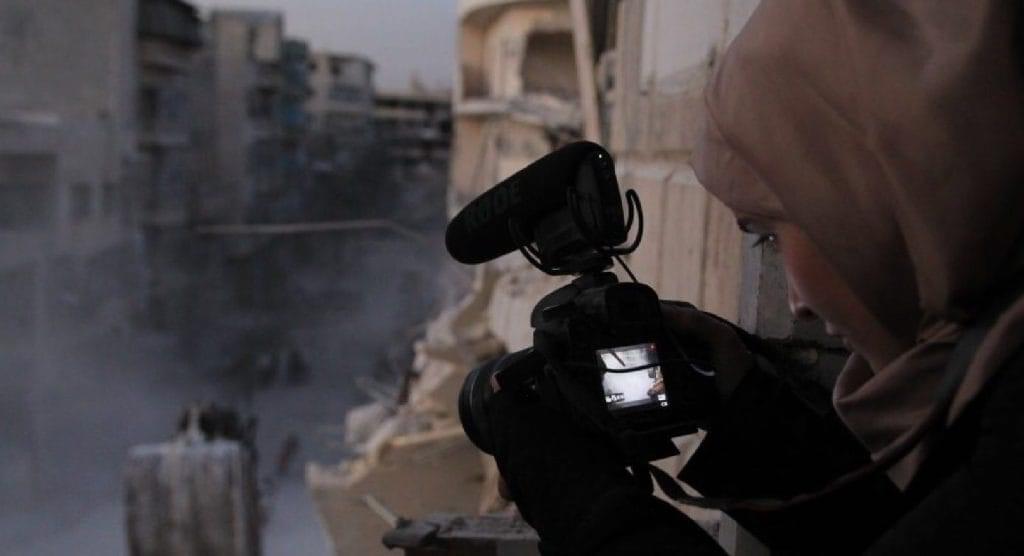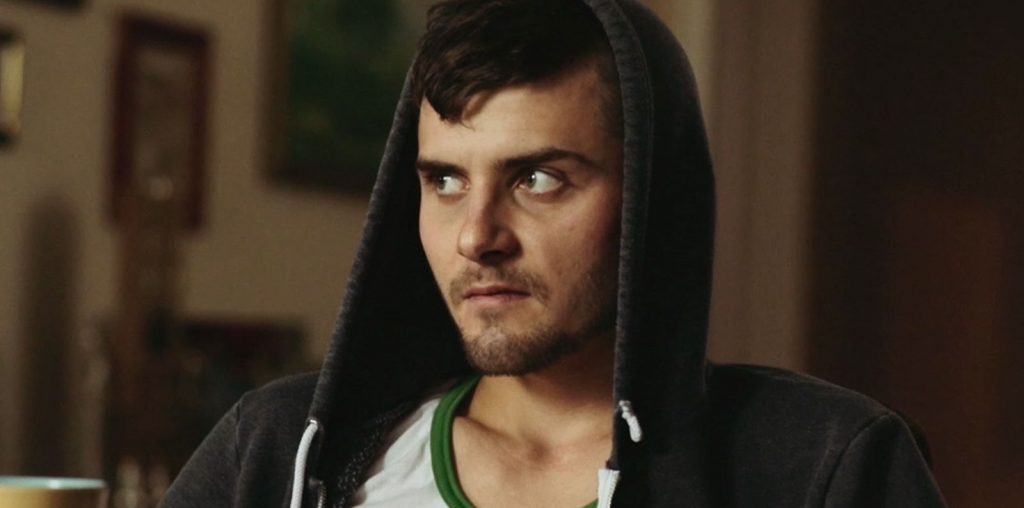
What inspired you to make “Nomi Song”?
Believe it or not it actually started out as a job. But it sort of sucked me in and it turned into almost a mission I would have to say. I certainly gave it my all.
You actually knew Klaus Nomi casually. What was your first impression of him?
I first met him when we were both working for a theater group called ‘The Ridiculous Theatrical Company’ in New York. They were doing a pretty outrageous take on Wagner’s ‘The Ring’ and I have to say that compared to them, Klaus looked sort of normal. But he seemed very nice and I used to bump into him on the street a lot after that. I just always assumed he was some opera queen so I was kind of surprised when he told me he wanted to put a band together. I was a lot more surprised, though when I saw him at the Vaudeville Show with the space suit and the smoke bombs, but then so was everyone else.
You lived in New York during the late 70s and early 80s New Wave movement. Can you explain where it came from and what it was like? What do you think the artists and fans were looking for?
After a lot of thought I realized the simple reason the East Village became what it was, was because it was cheap and so it attracted all the lunatics and misfits who couldn’t deal with life anywhere else. We were young and life was relatively simple and we had time on our hands, places to do things (rent was cheap and spaces were available) and everyone seemed if not actually ambitious to do things then at least available. I think people were in one sense looking to have a good time and in another sense maybe just too naive to know that a lot of what we wanted to do was supposed to be impossible, so we just did it. But that’s my opinion today.
“Nomi Song” took some time to make.
Yes, about 7 years. I still can’t believe it. A lot of it was just waiting I have to say.
How did you acquire some of that incredible footage? In particular the New Wave Vaudeville footage and the cooking show stuff…
A lot of the research really just began with going through my phone book and calling people who I hadn’t spoken to for many years. And then just hanging on the phone and being persistent until I either found what I needed or found someone who knew or found someone who knew someone who knew. And a lot of it was being open to accident. But to answer your question, it took me three steps to get to the person I needed to speak to about the Vaudeville and two to get to the cooking show.
How do you research someone like Klaus whose fame lies mostly on the peripheral of music?
Again, you just start by calling up everyone you know. It works. Eventually.
Do you find a lot of Nomi fans at the screenings, or is it made up more of curiosity seekers?
There are a surprising amount of Nomi fans out there but I hope for more curiosity seekers. The more the better. The New York premier was at a multiplex and a guy came up to me afterwards who had come for a regular movie and stumbled into the wrong theater and stayed and he said he really liked it.
What is it about Klaus that you think has endeared him to his fans even two decades after his death?
I can’t really say exactly – all I know is that I am constantly being contacted by people who want to see the movie and want to know things about him. I have to say that he has made many fans after his death, through the records, the videos and the movie “Urgh! A Music War”. Maybe as somebody whom I know from exactly this source, you can answer this better than I. Someone asked me once why I thought Klaus was relevant today and after thinking about it I can only say it’s because people respond to him now. I see it at the shows and I hear about it from people who contact me because of the movie. I know I got drawn into it by seeing him perform in the material I collected. You can’t underestimate the appeal of someone putting on a good show.
You said in another interview that Klaus dropped the Sperber and became Klaus Nomi. You said, “He never let the mask down. It was him.” Who do you think Klaus was?
I think he somehow always wanted to do opera, maybe not just the idea of what we know of as opera, as this thing from the past, but the idea of spectacle which is what the opera used to be. Remember it was originally a large scale form of mass entertainment and had big stars and very passionate fans. So it’s not such a leap from that to rock music today – or arguably even movies. He just found that he had to come to it from an unexpected direction. He spent a lot of time not having any focus and when he saw his way at the Vaudeville Show, he was smart enough to seize on it and try and take it as far as he could.
Why does his Aunt, Trude Sperber, only appear as a sort of paper doll in your movie?
She was too shy to deal with the camera. But she was such a wonderful person and had such a necessary perspective on Klaus that I couldn’t not have her in the film, and luckily I had an interview with her recorded on audiocassette that I could use. And at the same time, I also always wanted to deal with an aspect of Klaus that had to do with puppets and dolls – people said he sort of thought of himself as a puppet or cartoon figure, and he used to make paper dolls of himself in different costumes, and this seemed like a way to deal with both things at once. And also that Klaus’ Aunt was the person that represented his childhood it seemed also very appropriate on that level too.
Tell me about the meticulous recreation of her house.
I went there with my friend Blaise, who is a painter, and we spent a nice afternoon with her and he just came home and built it. I used to have it in my head that it looked exactly like her house but actually we faked a couple of things for convenience sake. For instance, we made the wallpaper out of the lines of text that she says in the interview so her real wallpaper was not striped like that, but that kind of device of using text as a wallpaper design was something I stole from myself from another movie. But we tried to stay true to the feeling we got in her home and I think we did that. Blaise actually painted all the pictures she had hanging on the wall, postage stamp sized.
Why did Joey Arias, who was a major part of Klaus’ life, contribute to the film but choose not to be in it?
That’s a question for Joey not me. I am grateful for the help he gave but of course I wish he had been in it.
Did any of your perceptions of Klaus change after you finished “Nomi Song”?
Yes, in that when I was able to see his actual club performances and hear the live material I realized he was a lot better than I thought from the records and the couple of videos I had seen. What was weird was when I saw the “Saturday Night Live” tape, I hadn’t seen it since the night I watched it then on TV and I had it in my head that Klaus and Joey were much more featured than they actually were. But in general in spite of the fact that many people know about him because of his death, I think it’s important to discover him as a living being through the performances.
You won the Teddy Award for best documentary. What was that like?
Well, it was a big surprise, not only in that I wasn’t expecting it, but I didn’t realize what a big deal it is. And also I was really grateful that it came with some money. I didn’t realize how much I needed it until I saw it get sucked up into my overdraft account.
What’s next for you?
Sleep?

